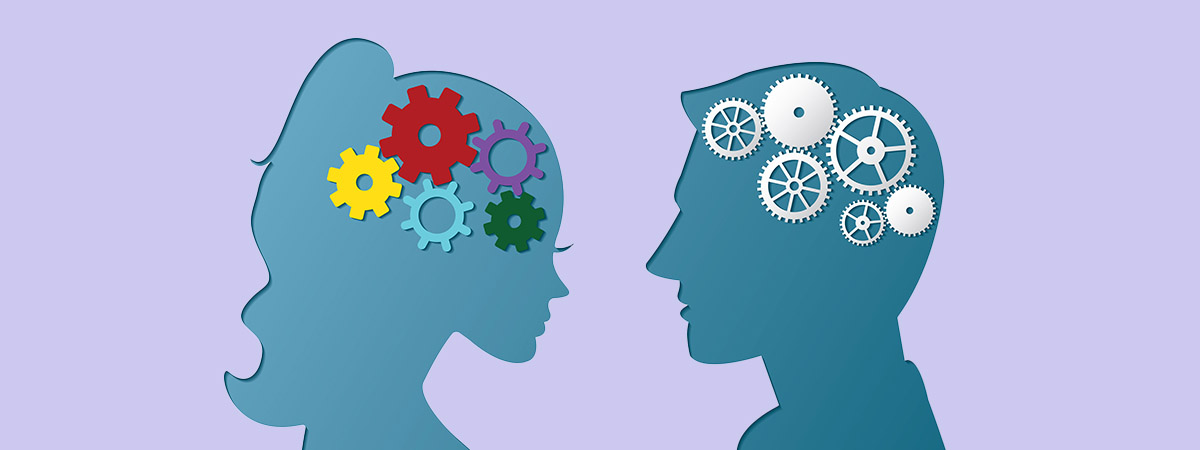
What To Know About Gender Differences In Substance Use Disorders
Individuals with substance use disorders (SUDs) have urges to use addictive substances like alcohol or drugs. These mental disorders affect both women and men, but will the two genders go through SUDs in a different manner? Current studies say “Yes.”
Recognizing the gender differences in substance use disorders can help you figure out when someone close to you -- male or female --needs addiction treatment. It also helps addiction treatment providers, like AffinityOne, know how to support patients. If you haven’t pondered how SUD affects men and women before, take a look at the following information.
Do Both Genders Experience The Same Symptoms Of SUD?
Women and men generally show the same symptoms of SUD. These include:
- Feeling compulsions to take a habit-forming substance each day or many times a day
- Getting overwhelming compulsions to use that become more important than other activities and needs
- Depending on increased doses of a substance to get the desired effect
- Struggling to control how often or how much you use
- Spending more money than you can afford on alcohol or drugs
- Prioritizing getting substances over other commitments
- Failing to fulfill obligations as a result of substance use
- Withdrawing from people close to you and social activities to keep using
- Continuing to take the substance even if you are aware it is creating problems
- Engaging in risky or unlawful endeavors to attain or use the substance
- Going into withdrawal if you attempt to quit using
- You fail in each bid to stop using
Although, habit-forming substances influence female bodies more quickly, so a substance use disorder advances faster in women. Women, consequently, are more likely to encounter acute symptoms before getting support.
What Are A Few Notable Differences In Substance Use Disorders Between Genders?
Per recent research about substance use, men do experience an SUD differently than women. In general:
- Men are more apt to consume illicit drugs or misuse prescription drugs.
- Women are more apt to misuse prescribed opioid pain relievers, anti-anxiety drugs, and sleeping tablets.
- Men have elevated dependency rates for alcohol and drugs.
- Mortality rates in women with alcohol disorders are 50 to 100 percent higher than in men.
- Men and women are just as likely to have a substance use disorder.
So, while men are more likely to consume unlawful substances, women are more likely to misuse prescription drugs. This may be due to the fact that women are more inclined to get treatment for sleep disorders, pain, and anxiety. And even though more men consume addictive drugs and alcohol in general, female physiology puts women at higher risk for dangerous diseases caused by substance use. But it’s essential to realize that everyone who uses habit-forming alcohol or drugs has the same chance of encountering an SUD, and any SUD may be devastating or even deadly.
Do Women And Men Search For Addiction Treatment At The Same Rate?
One noteworthy gender difference in substance use disorders involves treatment. More men search for addiction care than women. Women are typically the chief caregivers and might not have someone to look after their family members if they enter treatment. They might be afraid of losing their little ones if they reveal their addiction. Men have a reduced probability of having caregiving responsibilities that keep them out of residential care.
When they seek treatment, long-term recovery is a challenge for all people. However, men have a better chance of reaching it as they are less inclined to relapse. Women relapse at greater rates since they are more inclined to suffer from a severe addiction or co-occurring disorders that block recovery. They might also have difficulty finding addiction programs that personalize treatment to their unique requirements.
These details should not discourage any individual from getting treatment. Understanding these insights helps addiction recovery centers, families, and society as a whole better comprehend how to aid those dealing with SUDs. If you need assistance recovering from drug or alcohol addiction, reach out to a local, trusted treatment facility ASAP.
Find Treatment That Understands Gender And Addiction
Men and women have varying needs during SUD treatment. AffinityOne always tailors our care to your individual requirements. If you are looking for a hospitable spot to stay and work on addiction recovery, dial us at 855-808-5120 or fill out the following contact form. We reply right away, at all hours. Place the call now; we’re ready to help.
